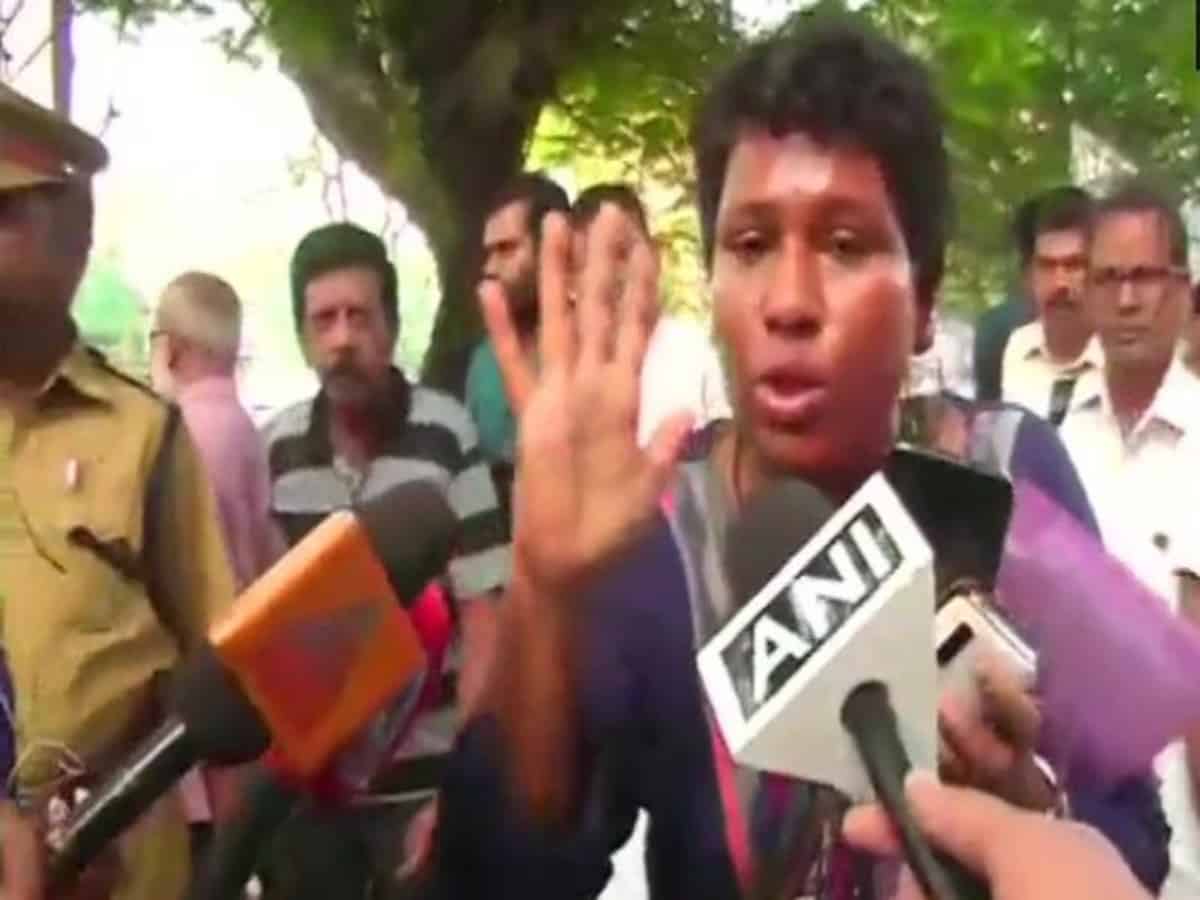
Dalit activist and one of the first two women to enter the Sabrimala temple, Bindhu Ammini was attacked by a miscreant as she tried to enter the temple on January 5.
The spate of attacks on Bindhu Ammini
Ammini was violently beaten by a man who tried to pin her to the ground. Visuals showed that the offender tried to overpower her through physical assault. In a video that has surfaced on Twitter, the offender identified as Mohandas can be seen assaulting the activist.
The video shows Mohandas beating Ammini, while others are seen standing by watching the assault. As Mohandas continued to assault the activist his Mundu falls off, exposing him. According to a report by The News Minute, Ammini said, “I am not safe here anymore. The only option is to leave the country and seek asylum.”
It is to be noted that Wednesday’s attack was not the first time that Ammini was attacked, a similar incident occurred in December last year when the activist was hit by an auto-rickshaw, sustaining head injuries. She filed a complaint against the same at the Koyilandy police, alleging that it was a planned attack in response to her Sabrimala campaign.
According to a report by News18, Bindhu Ammini said, “It was after I climbed Sabarimala that I was subjected to all these attacks. It’s not that yesterday’s incident was a conspired one. Because the message passed on to all, minor and major, right-wing groups are to attack me whenever and wherever they see me. The benefit they get from attacking me is that they would get reward and respect,”
Bindhu along with Kanaka Durga created history on January 2, 2019, by climbing up the stairs of the Sabrimala Temple following the landmark judgment of the Supreme Court in 2018, which allowed women between 10-50 years of age to enter the temple.
In some of her interviews after the historic moment, the activist told the media, that the police are hand-in-glove with the state.
The Supreme Court verdict on Sabrimala
On September 28, 2018, the Supreme Court adjudged that women irrespective of their age have the right to enter Kerala’s Sabrimala Ayppa Temple. A constitutional bench of the former Cheif Justice of India Dipak Misra, and Justices Rohinton Nariman, AM Khanvilkar, D Y Chandrachud, and Indu Malhotra by 4:1 majority struck down section 3 (b) of the Kerala Hindu Places of Public Worship (Authorisation of Entry) Rules, 1965 which barred the entry of women in the age group of 10 to 50 from entering the Sabrimala Temple.
The bench handling the case delivered four judgments regarding it. CJI Misra had written a judgment on his own behalf and Justice Khanwilkar, while Justice Malhotra wrote an opinion of dissent. Justices Chandrachud and Nariman wrote a concurring judgment each.
CJI Misra in his judgment stated, “Devotees of Ayyappa do not constitute a separate religious denomination” He further added that section 3 (b) of the Kerala Hindu Places of Public Worship (Authorisation of Entry) Rules, 1965 violated the Women’s right to participate in religious practices, adding that the section also violated Article 25 of the Indian Constitution, which grants the Right to Freedom of religion to all citizens. Therefore, CJI Misra held Rule 3 (b) to be ultra vires the 1965 Act under which it was framed.
Justice Rohinton Nariman concurred with the former CJI stating that the bar on women from entering the temple violates Article 25(1) of the Constitution. In his concurring judgment, Justice Chandrachud stated, “Religion cannot be cover to deny women right to worship. To treat women as children of lesser God is to blink at Constitutional morality.” He further mentioned that physiological features can not be the basis of denial of rights, adding that barring women of a certain age from observing vratam is stigmatisation.
Justice Chandrachud further highlighted the importance of Article 17 of the Indian Constitution, which prohibits untouchability. He went on to say that the Bombay High Court judgment of Narasu Appa Mali is not good in law.
In her dissenting judgment, Justice Malhotra said, the issues highlighted during the Sabrimala case will have an impact on other religious places as well. She stated that the issues related to religious practices, can not be tested solely on the basis of Article 14 of the Constitution.
She further added, “What constitutes essential religious practice is for the religious community to decide, not for the Court.” Justice Malhotra called for a balance between religious notions and the principles of non-discrimination. She differed from her colleague and stated that the Ayappa devotees indeed form a separate denomination.
Section 3(b) states that women shall not be entitled to offer worship in any place of public worship at such time during which they are not by custom and usage allowed to enter a place of public worship.



